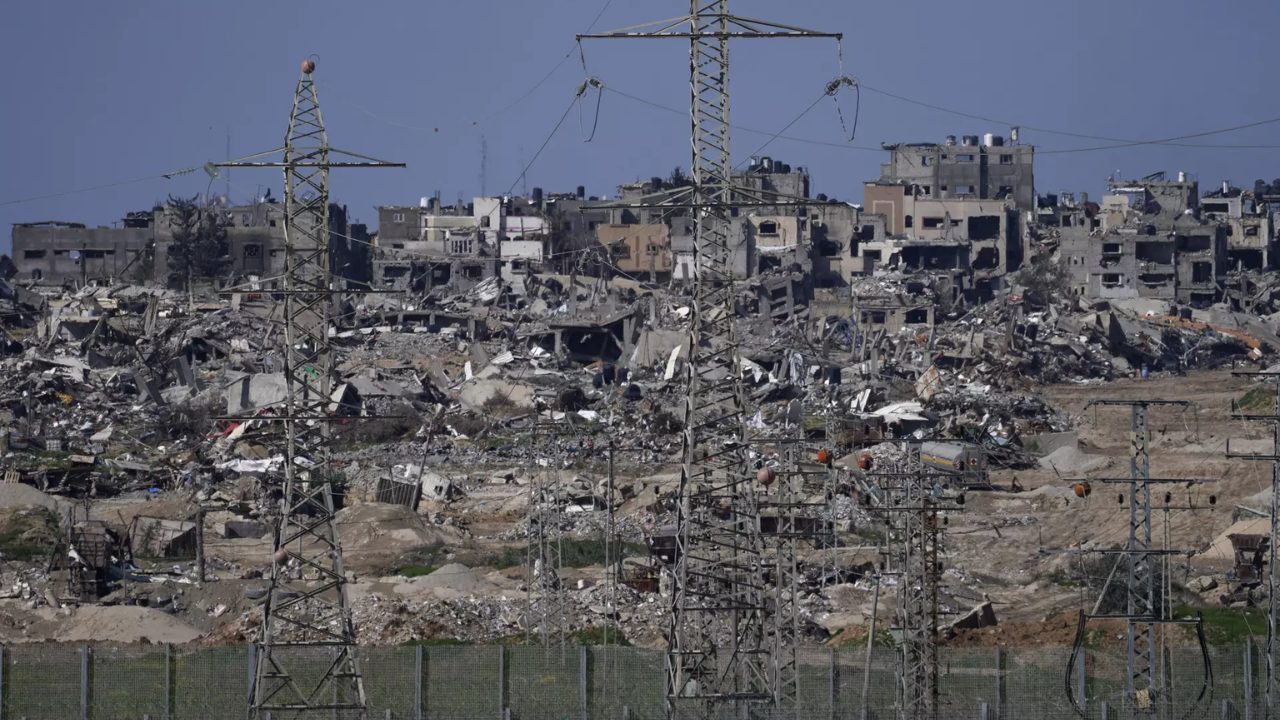[ad_1]
UNITED NATIONS: The US on Tuesday again vetoed a draft UN Security Council resolution on the Israel-Hamas war, blocking a demand for an immediate humanitarian ceasefire as it instead pushes the 15-member body to call for a temporary ceasefire linked to the release of hostages held by Hamas.
Thirteen council members voted in favour of the Algerian-drafted text, while Britain abstained. It was the third such US veto since the start of the current fighting on Oct 7.
US ambassador to the UN Linda Thomas-Greenfield signalled Saturday that the US would veto the draft resolution over concerns it could jeopardise talks between the US, Egypt, Israel and Qatar that seek to broker a pause in the war and the release of hostages held by Hamas in the Gaza Strip. “Demanding an immediate, unconditional ceasefire without an agreement requiring Hamas to release the hostages will not bring about a durable peace. Instead, it could extend the fighting between Hamas and Israel,” Thomas-Greenfield told the council ahead of the vote.
The Algerian-drafted resolution vetoed by the US did not link a ceasefire to the release of hostages. It separately demanded an immediate humanitarian ceasefire and unconditional release of all hostages.
The US has now proposed a rival draft resolution calling for a temporary ceasefire in the Israel-Hamas war and opposing a major ground offensive by its ally Israel in Rafah, according to the text seen by Reuters on Monday. It said it plans to allow time for negotiations and will not rush to a vote. Until now, Washington has been averse to the word ceasefire in any UN action on the Israel-Hamas war, but the US text echoes language that President Joe Biden said he used last week in conversations with Israeli PM Benjamin Netanyahu.
The US draft resolution would see the Security Council “underscore its support for a temporary ceasefire in Gaza as soon as practicable, based on the formula of all hostages being released, and calls for lifting all barriers to the provision of humanitarian assistance at scale.” This is the second time since Oct 7 that Washington has proposed a Security Council resolution on Gaza. Russia and China vetoed its first attempt in late Oct.
Thirteen council members voted in favour of the Algerian-drafted text, while Britain abstained. It was the third such US veto since the start of the current fighting on Oct 7.
US ambassador to the UN Linda Thomas-Greenfield signalled Saturday that the US would veto the draft resolution over concerns it could jeopardise talks between the US, Egypt, Israel and Qatar that seek to broker a pause in the war and the release of hostages held by Hamas in the Gaza Strip. “Demanding an immediate, unconditional ceasefire without an agreement requiring Hamas to release the hostages will not bring about a durable peace. Instead, it could extend the fighting between Hamas and Israel,” Thomas-Greenfield told the council ahead of the vote.
The Algerian-drafted resolution vetoed by the US did not link a ceasefire to the release of hostages. It separately demanded an immediate humanitarian ceasefire and unconditional release of all hostages.
The US has now proposed a rival draft resolution calling for a temporary ceasefire in the Israel-Hamas war and opposing a major ground offensive by its ally Israel in Rafah, according to the text seen by Reuters on Monday. It said it plans to allow time for negotiations and will not rush to a vote. Until now, Washington has been averse to the word ceasefire in any UN action on the Israel-Hamas war, but the US text echoes language that President Joe Biden said he used last week in conversations with Israeli PM Benjamin Netanyahu.
The US draft resolution would see the Security Council “underscore its support for a temporary ceasefire in Gaza as soon as practicable, based on the formula of all hostages being released, and calls for lifting all barriers to the provision of humanitarian assistance at scale.” This is the second time since Oct 7 that Washington has proposed a Security Council resolution on Gaza. Russia and China vetoed its first attempt in late Oct.
[ad_2]
Source link






